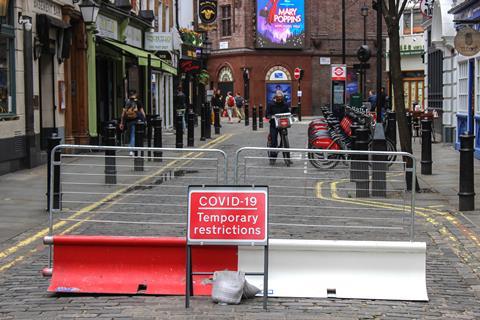Editor: It is true that Covid-19 has brought many retail and hospitality occupiers to crisis point – and some with little support from property owners.

But not 100% occupiers are down on income, far from 100% of property owners have refused rent concessions and yet all property owners are still prevented from taking action for 100% of contractual debts owed.
The pandemic hit at a time when the bricks-and-mortar retail market was shrinking. Forward-thinking property owners, recognising market change, held tight to good occupiers – why wouldn’t they? Without them they have no business. Millions of pounds have been compromised in deferrals and write-offs. Yet with the latest extension to the moratorium, whatever the financial health of an occupier, they are all relieved from the obligation to pay their rent debts, if they wish. Whatever has happened to our globally admired legal system?
With foresight and proper planning, tapering legislation could have been introduced to coincide with the end of the current moratorium, or at the very least introduced into the parliamentary timetable to restore the market. Instead, there is only a vague assurance of legislation some time, with a backstop in March 2022. So we see still further delays to restoring the property market and yet no further delay to restoring business rate revenues for the Exchequer.
Job losses in retail and hospitality due to business failure are severe and visible, whereas the casualties in property investment are severe but invisible – £6bn in rent debt losses doesn’t go unnoticed by the small independent investors, the public sector and pensioners whose daily budgets depend upon the income. It is upon these shoulders that the government is standing to stabilise the economic activity of other sectors, but then it’s easy to give away someone else’s money.
Vivienne King, real estate industry leader and NED






























No comments yet